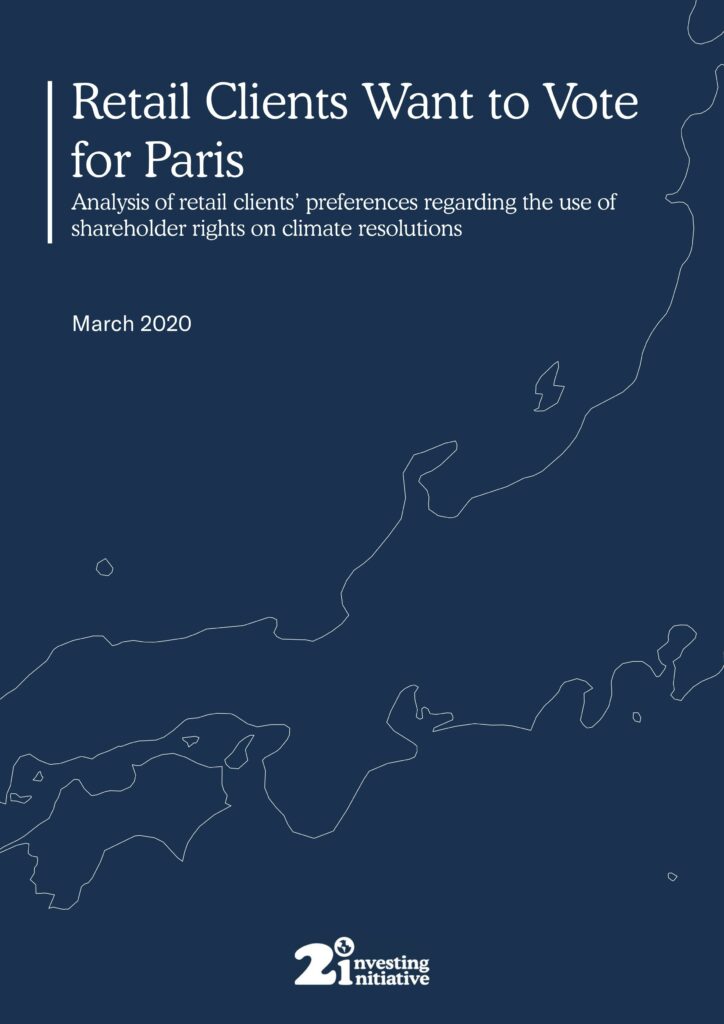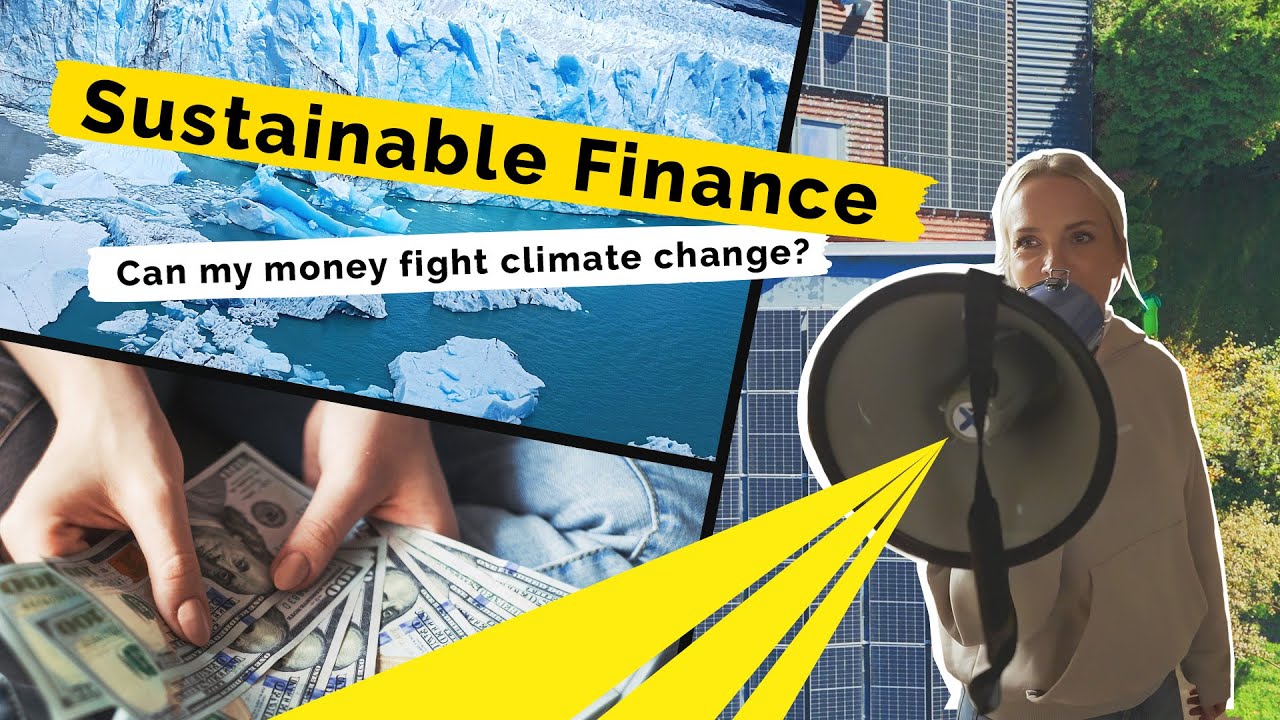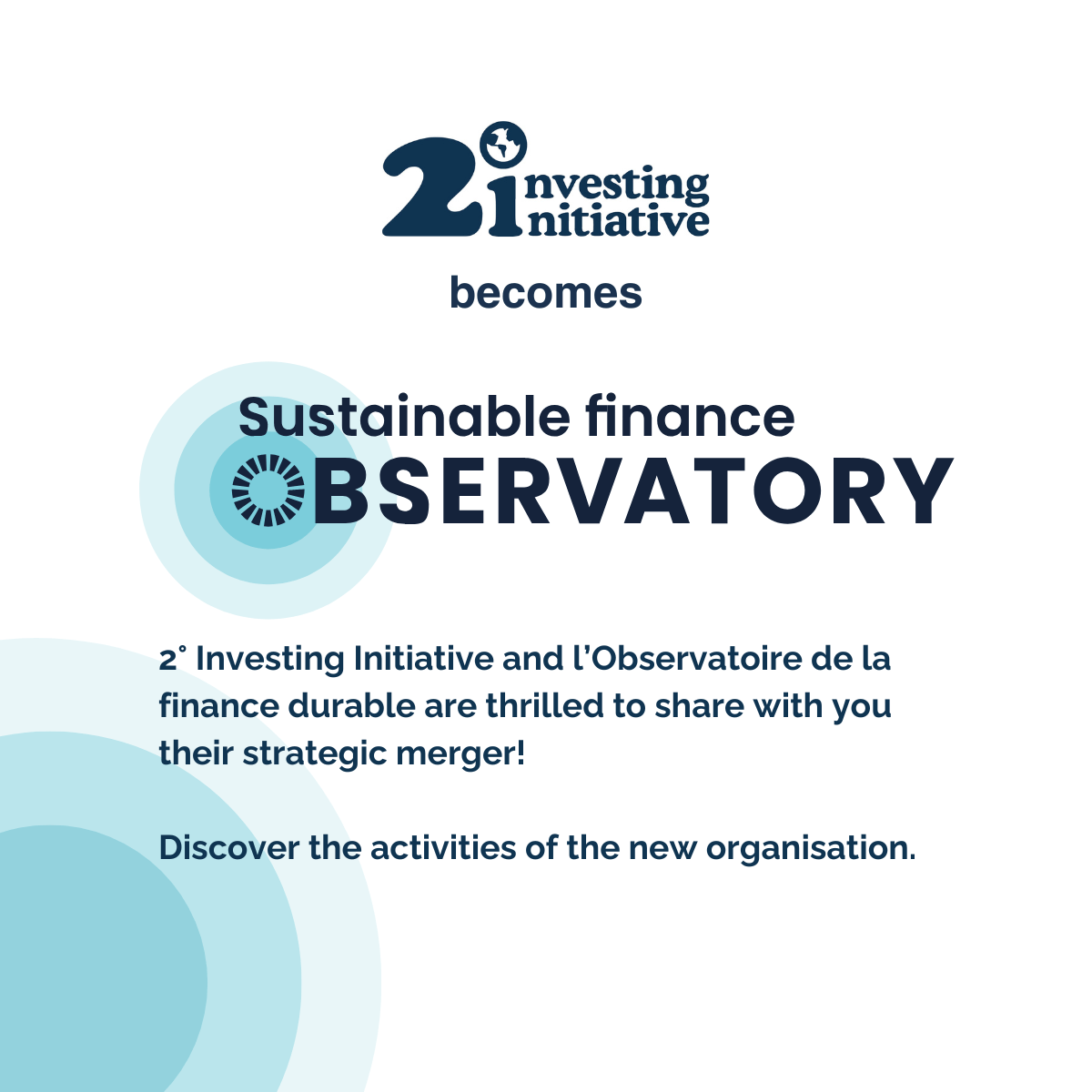Mainstream investors and commercial banks have started to communicate impact-related pledges at an organizational level. There is a growing number of investor climate pledges (i.e. Net Zero Asset Owner Alliance etc.) that set long-term climate targets. One critical avenue for pursuing the necessary actions to meet these targets involves climate-related shareholder resolutions, which engage and hold investees accountable on climate related issues. Such resolutions and wider Paris-aligned engagement with investee companies is evolving into a critical part of the impact investing framework.
The Climate Action 100+ initiative, a coalition of investors with over $30 trillion in assets under management and focused on driving climate actions across the largest emitters in the world, is testament to the increase in the quality and quantity of climate stewardship by investors.
However, support for climate resolution still averages about 20% when voted on at general meetings.
Retail investors are the largest holders of financial assets in Europe, but currently play a minor role in corporate governance of listed companies (Balp 2018; Payne 2009; Schenker et al Undated etc.).
In the European context, this minor role is despite measures in the 2017 Commission Action Plan setting out a strategy for retail financial services (COM/2017/0139) and recent reforms to the Shareholder Rights Directive (2007/36/EC) to assist individual participation in capital markets.
At the same time, retail investors are key to achieving the objectives in the Commission’s 2018 Sustainable Finance Action Plan (SFAP) which aims to reorient capital towards sustainable investment. The SFAP leverages the fact that retail investors increasingly want to invest sustainably and contains measures to enable retail investors to express their sustainability preferences and find financial products matching those sustainability preferences.
Against this backdrop, the relevance of retail investors to climate resolutions is overlooked.
Using analysis of the profile of results from the last European Parliament elections and 2DII’s survey programme, this paper seeks to understand retail investor voting preferences (as a subset of broader retail investor sustainability preferences) and whether they would support climate resolutions.
The paper then analyses the barriers to retail investor voting preferences being acted upon. It puts forward recommendations to address these barriers so that votes cast in relation to financial capital provided by retail investors reflects their voting preferences for climate resolutions.
About our funders: This report has received funding from EIT Climate-KIC. This work reflects the authors’ views only, and the funders are not responsible for any use that may be made of the information it contains.




